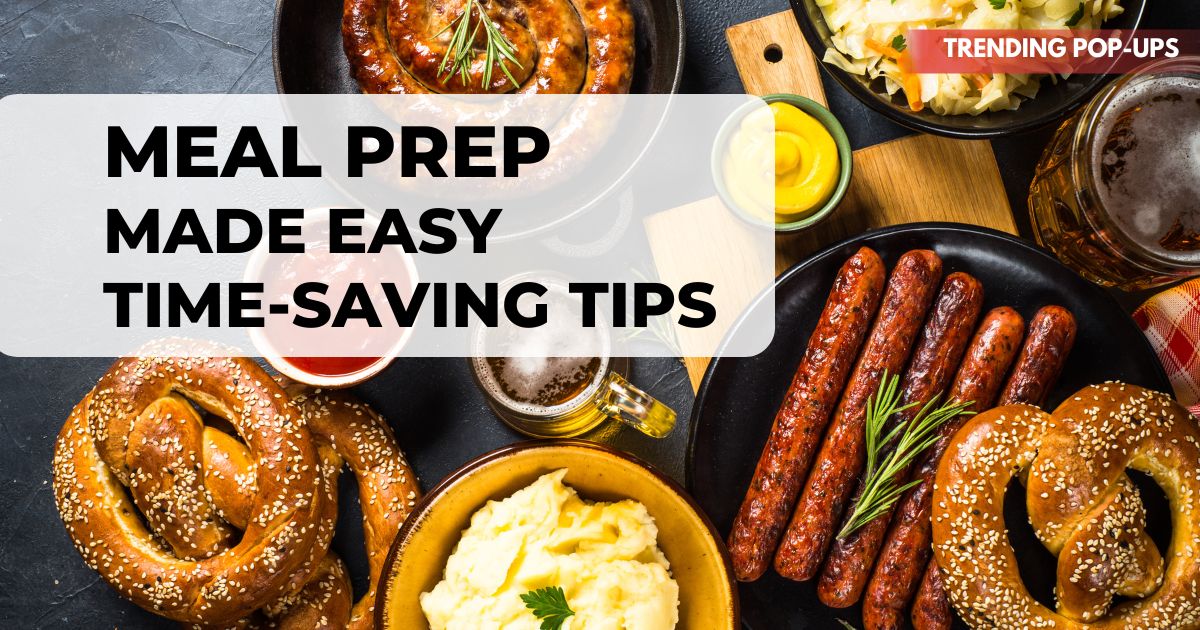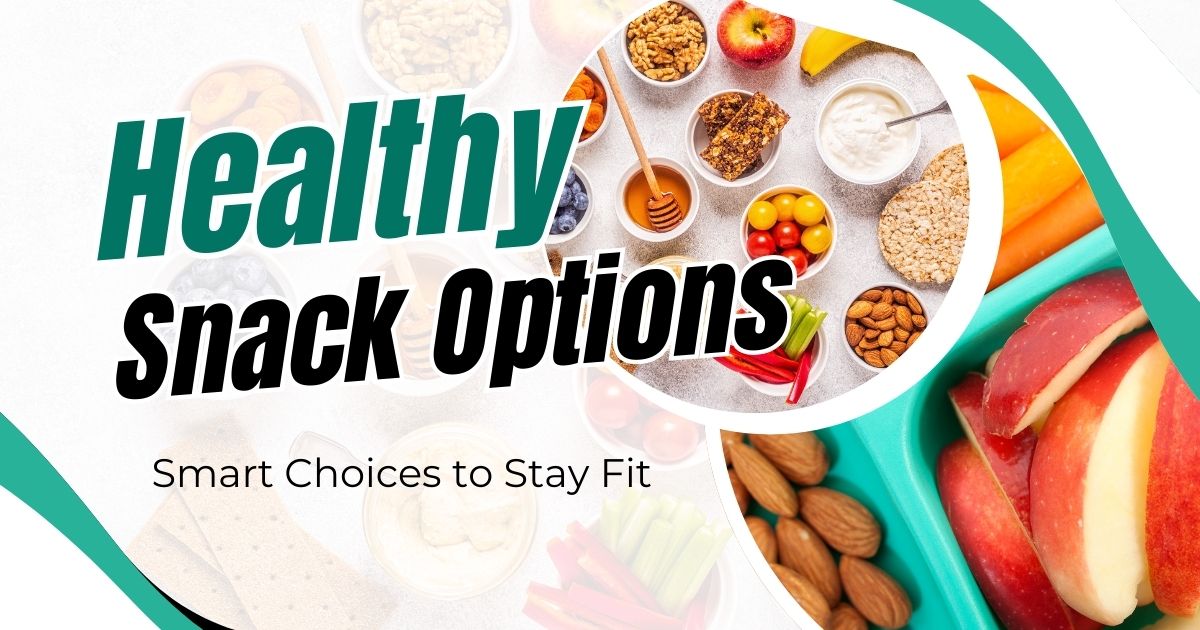In today’s fast-paced world, preparing healthy meals every day can feel like an impossible task. Between work, family, and personal responsibilities, many people turn to fast food or processed meals for convenience. However, meal prep offers a practical solution that saves time, reduces stress, and supports long-term health goals. With a little planning and smart strategies, you can enjoy nutritious, home-cooked meals throughout the week without spending hours in the kitchen daily.
This guide explores meal prep made easy, offering time-saving tips for healthy eating that anyone can follow.
What Is Meal Prep and Why Is It Important?
Meal prep refers to the practice of planning, preparing, and portioning meals in advance. It’s not just for bodybuilders or dieters—it’s for anyone who wants to eat healthier while saving time and money.
Key benefits include:
-
Time efficiency: Cook once, eat multiple times.
-
Healthier eating: Control ingredients, avoid unhealthy takeout.
-
Cost savings: Buy in bulk and reduce food waste.
-
Less stress: Always have a healthy option ready.
Step 1: Start with a Meal Plan
The foundation of successful meal prep is planning. Dedicate a few minutes each week to decide what you’ll eat.
Tips for meal planning:
-
Choose 3–4 main recipes you enjoy.
-
Focus on versatile ingredients like chicken, beans, rice, and vegetables.
-
Factor in snacks and breakfast, not just lunch and dinner.
-
Keep it realistic—don’t plan gourmet meals for every day.
Step 2: Shop Smart and Stock Your Pantry
A successful meal prep begins at the grocery store. Having the right ingredients on hand prevents last-minute unhealthy choices.
Smart shopping strategies:
-
Create a shopping list based on your meal plan.
-
Shop the perimeter of the store for fresh produce, proteins, and dairy.
-
Stock pantry staples like quinoa, oats, canned beans, and spices.
-
Buy in bulk for cost savings.
Step 3: Batch Cooking Basics
Batch cooking is the heart of meal prep—cook larger portions at once and portion them for later.
Examples of batch cooking:
-
Roast a tray of vegetables for the week.
-
Grill chicken breasts or bake salmon in bulk.
-
Cook a big pot of quinoa, rice, or lentils.
-
Make soups, stews, or chili that can be frozen.
Batch cooking saves hours and ensures you always have a nutritious base for meals.
Step 4: Invest in the Right Containers
Storage matters. Using the right containers keeps food fresh, safe, and easy to transport.
Container tips:
-
Use BPA-free, microwave-safe containers.
-
Divide meals into individual portions.
-
Use glass containers for reheating.
-
Label with dates to track freshness.
Step 5: Time-Saving Meal Prep Hacks
Meal prep doesn’t have to take your entire Sunday. With smart hacks, you can cut cooking time in half.
-
Prep ingredients ahead: Wash and chop vegetables in bulk.
-
Use kitchen gadgets: Slow cookers, instant pots, and air fryers save time.
-
Double recipes: Cook once, freeze extras for busy weeks.
-
Mix and match: Use the same base ingredients in multiple recipes.
Step 6: Balance Nutrition in Every Meal
Meal prep is about more than convenience—it’s about nourishment. To stay healthy and energized, focus on balanced meals.
A balanced meal should include:
-
Lean protein (chicken, tofu, fish, eggs, beans)
-
Complex carbs (brown rice, quinoa, oats, whole grains)
-
Healthy fats (avocado, olive oil, nuts, seeds)
-
Plenty of vegetables for fiber, vitamins, and minerals
Step 7: Keep It Interesting with Variety
One common concern about meal prep is food boredom. Eating the same meal daily can make you give up. Avoid this by adding variety.
Ideas for variety:
-
Rotate spices and sauces (Mexican, Mediterranean, Asian flavors).
-
Switch proteins (chicken one week, salmon the next).
-
Try seasonal fruits and vegetables.
-
Create a “theme night” (Taco Tuesday, Stir-Fry Friday).
Step 8: Store and Reheat Safely
Food safety is essential for meal prep. Improper storage can lead to spoilage or illness.
Storage guidelines:
-
Refrigerate meals within 2 hours of cooking.
-
Store in the fridge for 3–4 days maximum.
-
Freeze meals you won’t eat right away.
-
Thaw in the fridge overnight, not on the counter.
Long-Term Benefits of Meal Prep
By incorporating meal prep into your lifestyle, you’ll notice:
-
Improved portion control.
-
More consistent healthy eating habits.
-
Reduced decision fatigue during busy days.
-
Greater energy and productivity from nutritious meals.
Meal prep transforms your relationship with food by making healthy choices effortless.
Also read : Top Anti-Inflammatory Foods You Should Eat Every Day
FAQs
1. How many days in advance should I meal prep?
Most people meal prep for 3–4 days at a time to ensure freshness. For longer storage, freeze meals.
2. Can I meal prep if I don’t like eating leftovers?
Yes! Focus on prepping ingredients (like chopped veggies or cooked proteins) instead of full meals. Assemble fresh each day.
3. Is meal prep good for weight loss?
Definitely. By controlling portions and ingredients, meal prep helps avoid overeating and unhealthy food choices.
4. How do I keep vegetables from getting soggy?
Store dressings and sauces separately, and avoid overcooking vegetables during batch prep.
5. Can I meal prep on a budget?
Yes! Buying in bulk, using seasonal produce, and repurposing leftovers can make meal prep very affordable.



